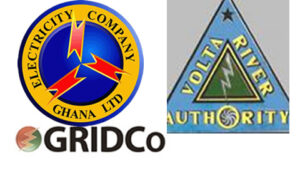Special topics
 A 400 megawatt power agreement for $953 million, currently being pushed through Parliament, is generating further controversy, as two analysts back suggestions the deal fails in value-for-money analysis.
A 400 megawatt power agreement for $953 million, currently being pushed through Parliament, is generating further controversy, as two analysts back suggestions the deal fails in value-for-money analysis.
Energy Policy Advisor at energy think tank, Africa Centre for Energy Policy (ACEP), says a preliminary assessment of the deal points to an absence of due diligence that would result in excess cost for power if the deal gets Parliamentary approval.
Dr. Ishmael Ackah also warns aspects of the power agreement that would make it mandatory for government to secure fuel for Early Power Limited to run power plants would prove detrimental to the country in the long run.
“The bottom line is simple. We shouldn’t rush into this deal. I call on Parliament to reject it because we don’t have money to get any fuel. If we have money let us get fuel for existing [power plants],” he said.
Another expert, Kojo Poku, also says the emergency status accorded the deal is a misnomer, a further proof that the deal is not sound.
“Emergency in what sense? This plant is going to be built in three years, so what is the emergency about it?” he quizzed.
The experts were speaking Thursday evening on current affairs programme PM Express that airs on the Joy News channel on Multi TV.
Early Power Limited, the main sponsor entered into the agreement with the Government of Ghana, together with the Electricity Company of Ghana (ECG), Sage Petroleum Limited, Endeavor and EPL Holdings Cooperatie, UA, General Energy Investments (GE) IBV, and Quantum Gas Terminals.
The emergency power project, which is expected to ease the country’s unrelenting power crisis, involves the development, ownership, operation and management of 400MW Combined Cycle Plant to be fueled by either Liquefied Petroleum Gas (LPG) or Natural Gas (NG) for a 25-year period by Early Power Limited in Tema.
Beyond the 25-year period, the power plant transfers to a nominated entity by the Government of Ghana at a purchase price of US$1.00.
The deal, which is currently before the Mines and Energy Committee of Parliament, has already been criticised by the Minority in Parliament who raised questions about the cost.
The Karpower and Ameri power deals were also criticised for being significantly higher than the average costs.
Speaking on PM Express Thursday, Dr Ackah said just like the Karpower and Ameri deals, power that will be generated by the $953 million project will be too expensive for the consumer.
“We shouldn’t entangle our self. We are carrying so much risk,” he told show host Malik Abass Daabu.
He said the country’s installed capacity — some 2,100 megawatts — is sufficient for stable power supply if existing power plants are adequately fed with regular fuel supply.
Kojo Poku also doubted Early Power Limited’s ability to deliver on the deal.
According to him the company has existed barely two years and has no track record of managing such projects like the one currently seeking Parliament’s approval.
Meanwhile, ACEP says it will soon publish a full report on the cost-benefit-analysis of the deal.
A policy analyst at ACEP, Pauline Anaman, says although a comprehensive report is yet to be compiled, suggestions that the cost for the project is significantly higher are credible.
Source: http://www.myjoyonline.com/news/2016/July-29th/experts-warn-953m-early-power-deal-stinks-urge-parliament-to-reject-it.php